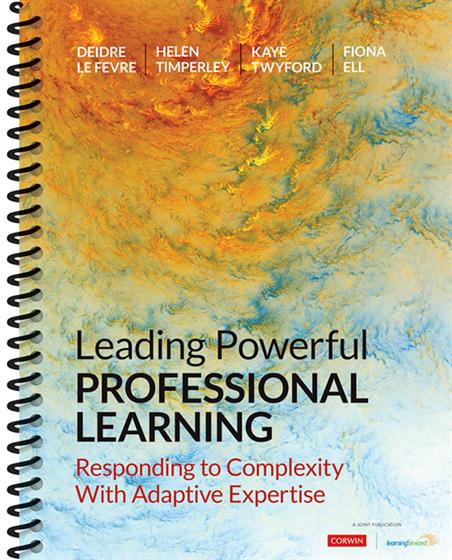Hands-on, Practical Guidance for Educators
From math,
literacy, equity, multilingual learners, and SEL, to assessment, school counseling,
and education leadership, our books are research-based and authored by experts
on topics most relevant to what educators are facing today.

Leading Powerful Professional Learning
A Joint Publication with Learning Forward
Foreword by Viviane Robinson
- Grade Level: PreK-12
- ISBN: 9781544361451
- Published By: Corwin
- Year: 2019
- Page Count: 160
- Publication date: October 22, 2019
Review Copies
Review copies may be requested by individuals planning to purchase 10 or more copies for a team or considering a book for adoption in a higher ed course. Request review copy
Other Titles in: Staff Development & Professional Learning | Teacher Leadership | Reflective Practice





